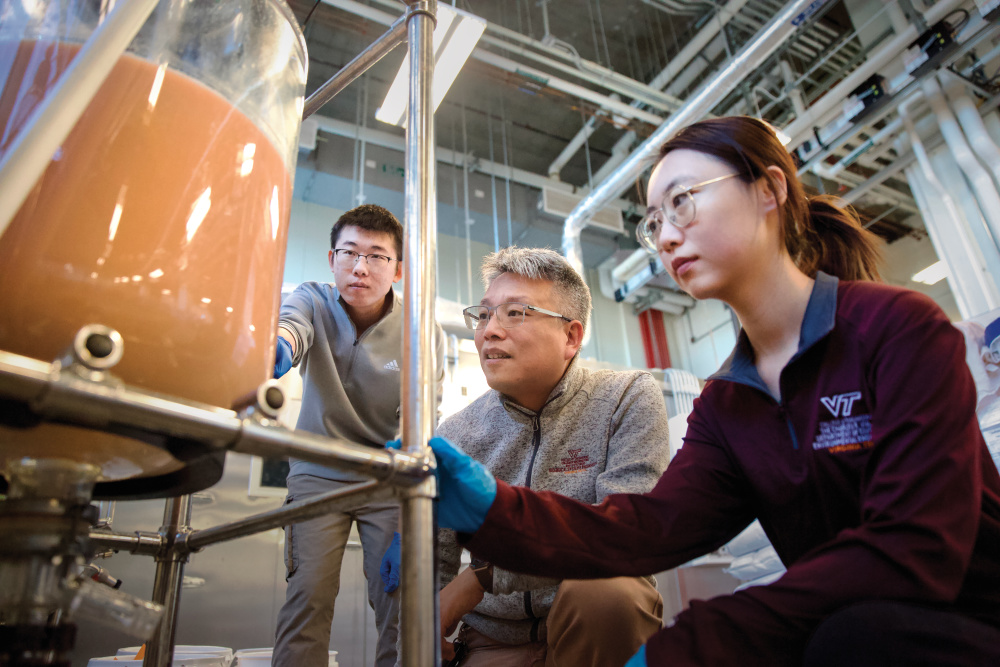Virginia’s Land Grant Universities Conduct Critical Research for the Next Generation

Virginia’s land grant universities were established to research and address local challenges and disseminate that information to the public. Virginia Tech and Virginia State University are doing just that as they conduct critical research for the next generation of farmers and consumers with cost-saving and environment-protecting solutions.
Farming Bioplastics
At Virginia Tech, Zhiwu “Drew” Wang, Ph.D., associate professor and Extension specialist, conducts groundbreaking research to convert food waste into items people use every day. According to Wang, nearly 40% of food produced in the U.S. ends up in landfills. This results not only in greenhouse gas emissions but also carries an annual $165 billion in economic loss from the food, water, energy and chemicals spent in the food supply chain. Additionally, 65% of plastic also finds its way to landfills.
“In the landfill, food converts into greenhouse gas, and plastic left to break down over time becomes microplastics,” Wang says. “These plastics will occupy the landfills for hundreds of years, and the microplastics released along with landfill leachate will eventually harm the environment.”
Wang and a team of researchers at Virginia Tech are conducting a three-year pilot study on bioplastics made from food waste. To create bioplastic, researchers utilize microorganisms to convert food waste into biopolymers – organic polymers produced by living organisms made from biomolecules like carbohydrates, proteins and fats – which then get processed into bioplastics.
“I farm lots of bacteria to eat the food waste, and the bacteria grows lots of ‘fat,’ namely biopolymers,” Wang says. “Next, I open the bacteria cell walls, and they release their fat and then I process or refine that bacterial fat into bioplastics.”
The outcome of this innovative project will be a process that delivers economically feasible bioplastic products made from food waste.
See more: Virginia’s Land Grant Universities Conduct Critical Research for the Next Generation




